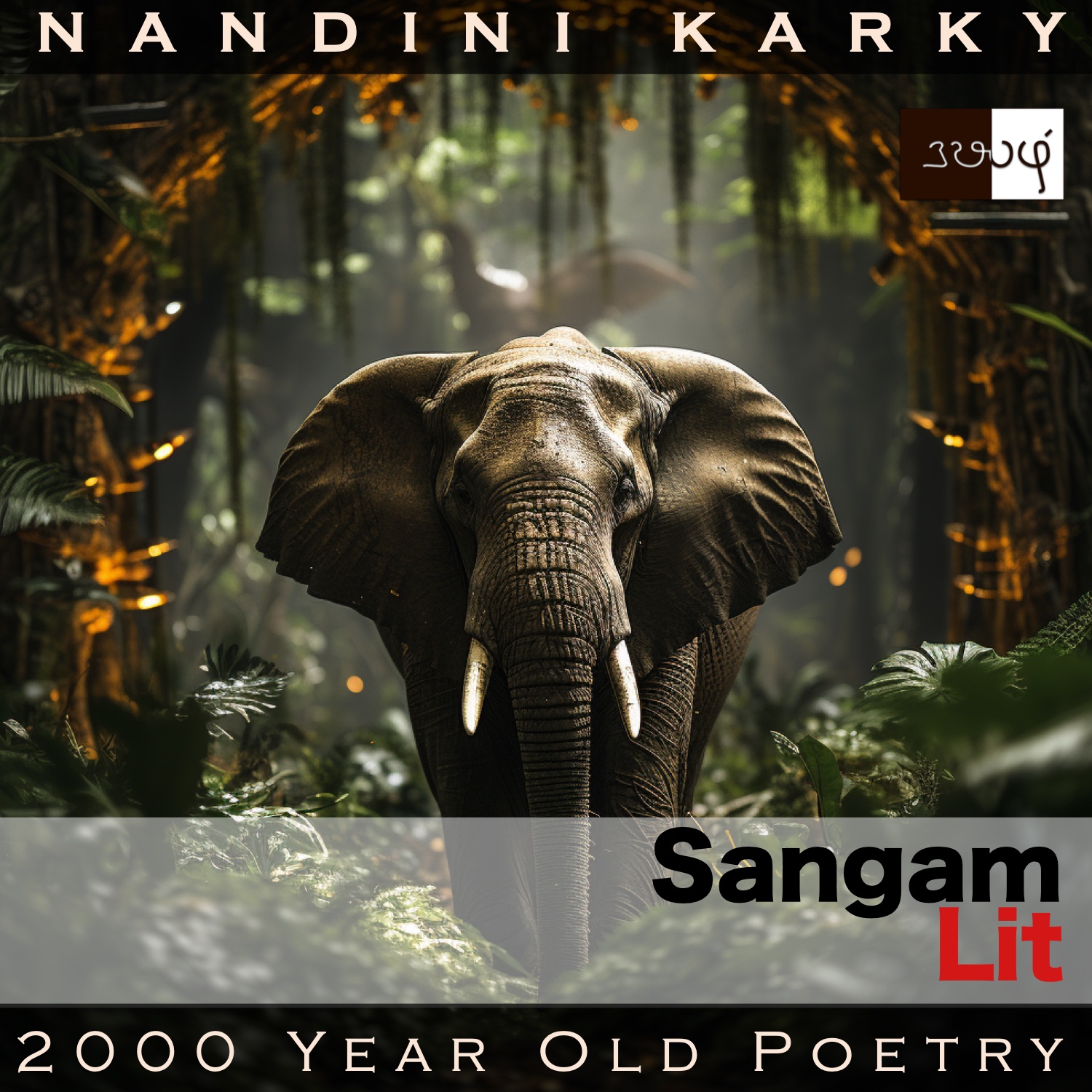Podcast: Play in new window | Download
Subscribe: Apple Podcasts | Spotify | Amazon Music | Android | iHeartRadio | TuneIn | RSS | More
In this episode, we listen to a rousing argument for doing good, as portrayed in Sangam Literary work, Puranaanooru 214, penned by the Chozha King Koperunchozhan. The verse is situated in the category of ‘Pothuviyal Thinai’ or ‘Common themes’ and puts forth the rationale for living a life of high ideals.

‘செய்குவம்கொல்லோ, நல்வினை?’ எனவே
ஐயம் அறாஅர், கசடு ஈண்டு காட்சி
நீங்கா நெஞ்சத்துத் துணிவு இல்லோரே;
யானை வேட்டுவன் யானையும் பெறுமே;
குறும்பூழ் வேட்டுவன் வறுங் கையும் வருமே:
அதனால், உயர்ந்த வேட்டத்து உயர்ந்திசினோர்க்கு,
செய்வினை மருங்கின் எய்தல் உண்டு எனின்,
தொய்யா உலகத்து நுகர்ச்சியும் கூடும்;
தொய்யா உலகத்து நுகர்ச்சி இல் எனின்,
மாறிப் பிறப்பின் இன்மையும் கூடும்;
மாறிப் பிறவார் ஆயினும், இமயத்துக்
கோடு உயர்ந்தன்ன தம் இசை நட்டு,
தீது இல் யாக்கையொடு மாய்தல் தவத் தலையே.
After listening to poets celebrate this king, we get to hear from the ruler himself. The Chozha king’s words can be translated as follows:
“Those who ask, ‘Should I do good deeds?’ and who are never rid of their doubts, are endlessly looking at the world with a flawed perspective, without strength in their hearts. One hunting for an elephant may win an elephant; Another hunting for a mere quail may returned empty-handed too; And so, if it’s true that the great ones who have high ideals are sure to benefit from the good deeds done, then they may enjoy the pleasures of the endless world; If there’s nothing called the pleasures of the endless world, they may attain the release from another birth; Even if they are to be born again, still it’s a noble thing to part away from a blameless life, after planting one’s fame firmly like a soaring peak of the Himalayas!”
Let’s delve into the nuances of these words. The king gives his opinion of people, who hesitate in life, full of doubts, wondering if they should do good deeds or not. He declares that these people lack a clear view of life and are devoid of inner strength. Then, he goes on to talk about how a person who thinks that he must hunt and bring home an elephant may succeed in doing that. At the same time, another person who thinks all I need is a quail today, may fail in their easy task and come home with nothing in their hands. And so, one should aim high, the king declares.
The king continues by sharing how there’s a belief that those people who aim high would be rewarded for their actions and that reward is a life of joy in the eternal land of the dead. If that’s not true and there is no such thing as a life of joy in eternity, then maybe they will escape being born again in this world. If even that is false and they end up being born again, even so it’s better to part from this world having lived a flawless life and having established one’s fame like a Himalayan peak. In short, the king clearly states that many are the rewards promised in the future for your good deeds but even if none of that happens, it’s better to have lived a life of good in the present.
A verse that informs us about the uncertainties regarding afterlife that was prevalent in Sangam thought. In later centuries, there arose an unshakeable faith in eternal life and concepts of heaven where religion seemed to exert an overt influence on human thinking. Here, there’s contemplation on various possibilities. A philosophy that’s logical and scientific even at the core. There is no fanaticism here, no declaration that this and only this is the right way of seeing the world. Rather, there is intellectual humility on the part of this king, who says all these beliefs may turn out to be totally false. Without resorting to the easy argument of faith, this ruler from two thousand years ago makes a persuasive case for doing good and aspiring high, something relevant and relatable beyond space and time!




Share your thoughts...